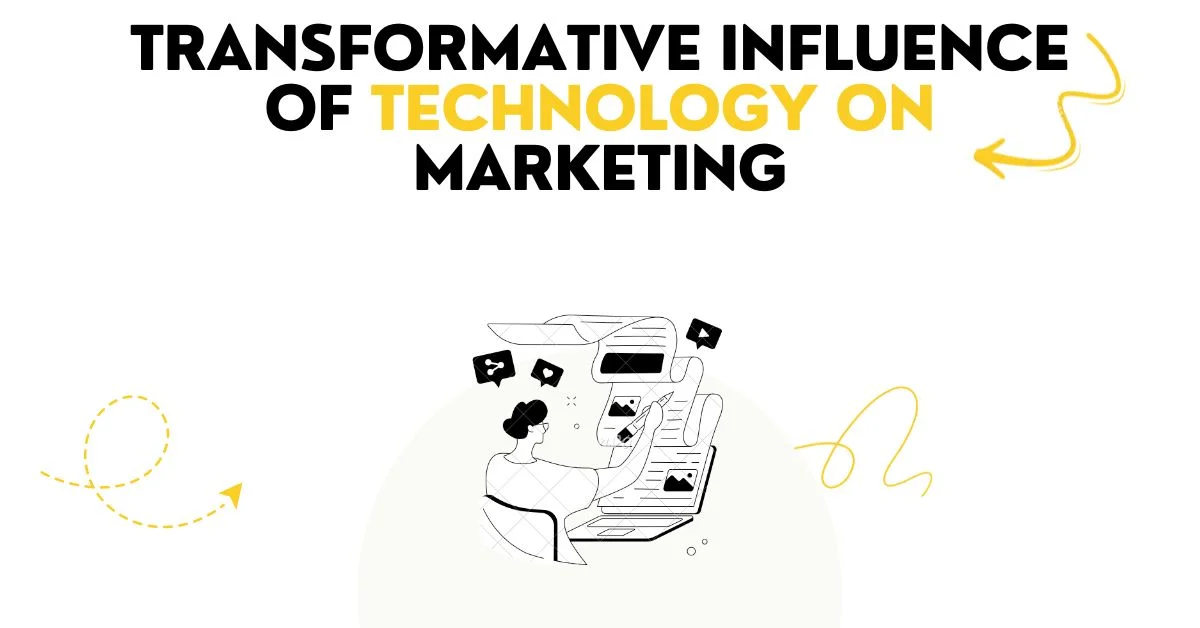In the ever-evolving landscape of the business world, technology has emerged as a transformative force, reshaping marketing strategies and consumer interactions. The digital revolution, characterized by rapid technological advancements, has not only altered the way businesses operate but has also redefined the essence of marketing itself. This exploration delves into the profound influence of technology on marketing, highlighting key areas of impact, challenges, and the future of marketing in the digital age.
Redefining Consumer Engagement
The advent of the internet and social media platforms has fundamentally changed how brands interact with consumers. Digital channels offer unprecedented opportunities for engagement, allowing for two-way communication and fostering a sense of community among consumers.
Social media marketing, influencer collaborations, and user-generated content have become staple strategies, enabling brands to connect with audiences on a more personal and authentic level.
Personalization and Data-Driven Marketing
One of the most significant impacts of technology on marketing is the ability to personalize consumer experiences. Advanced analytics and big data technologies enable marketers to gather detailed insights into consumer behavior, preferences, and patterns. This wealth of data allows for highly targeted and personalized marketing campaigns, significantly improving the effectiveness of marketing efforts.
Personalization extends to product recommendations, tailored content, and customized communication, enhancing consumer satisfaction and loyalty.
The Rise of Mobile Marketing
The proliferation of smartphones and mobile devices has given rise to mobile marketing, a strategy that targets consumers on their mobile devices. Mobile apps, SMS marketing, and location-based services have become powerful tools for reaching consumers anytime, anywhere. The convenience and immediacy of mobile interactions have made it a crucial component of modern marketing strategies, emphasizing the need for mobile-optimized content and experiences.

E-commerce and the Digital Marketplace
Technology has also revolutionized the retail landscape through the growth of e-commerce. Online marketplaces and e-commerce platforms have made it possible for businesses to reach global markets with ease. The convenience of online shopping, coupled with personalized shopping experiences powered by AI and machine learning, has shifted consumer preferences towards digital channels.
This shift has prompted traditional retailers to adopt omnichannel strategies, integrating online and offline experiences to meet consumer demands.
Content Marketing and SEO
The digital age has underscored the importance of content marketing and search engine optimization (SEO) as critical components of marketing strategies. Quality, relevant content is vital for engaging consumers and improving online visibility. SEO techniques ensure that this content ranks well in search engine results, driving organic traffic to websites.
The dynamic nature of search algorithms requires marketers to stay updated on best practices, emphasizing the importance of high-quality content and technical SEO.
Challenges in the Digital Marketing Landscape
While technology offers numerous opportunities for marketing innovation, it also presents challenges. The fast-paced nature of technological advancements requires marketers to continually adapt and evolve their strategies. Privacy concerns and data protection regulations, such as GDPR, necessitate careful handling of consumer data. Additionally, the digital space is highly competitive, with brands vying for consumer attention amidst a deluge of online content.
The Future of Marketing in the Digital Age
Looking ahead, the intersection of technology and marketing will continue to evolve, driven by emerging technologies such as artificial intelligence (AI), augmented reality (AR), virtual reality (VR), and the Internet of Things (IoT). These technologies promise to further personalize consumer experiences, create immersive brand interactions, and unlock new avenues for engagement.
AI, in particular, is poised to revolutionize marketing through predictive analytics, automated decision-making, and enhanced personalization. AR and VR offer innovative ways for consumers to interact with products and brands, providing immersive experiences that blur the lines between the digital and physical worlds. The IoT connects everyday objects to the internet, opening up new opportunities for real-time engagement and data collection.

Conclusion
The influence of technology on marketing is profound and far-reaching, transforming traditional marketing paradigms and introducing new challenges and opportunities. As technology continues to advance, the future of marketing lies in the ability of businesses to adapt, innovate, and harness the power of digital tools to connect with consumers in meaningful ways.
Embracing the digital revolution requires a strategic blend of creativity, data-driven insights, and technological acumen. By navigating the complexities of the digital landscape, marketers can unlock the full potential of technology to create engaging, personalized, and effective marketing campaigns that resonate with consumers in the digital age.










